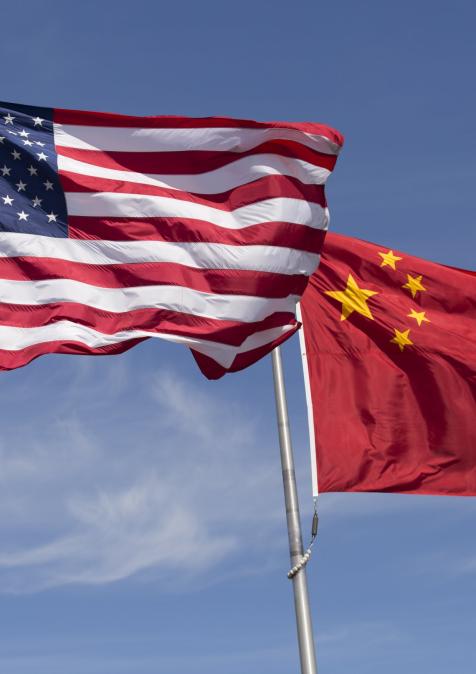Publications /
Opinion
Prior to her visit to China on April 4—her second in nine months—Janet Yellen, United States Secretary of the Treasury, sent a message demanding that the country should not flood the world with cheap exports of clean energy. This would “distort global markets and harm workers abroad,” she said. According to a senior U.S. Treasury official, China’s excess industrial capacity and the government support that has fueled it were subject of discussion during her meeting with Chinese Premier Li Qiang.
Current levels of ample idle capacity and consumer restraint are some of the challenges China must address if it is to achieve higher economic growth. Exports, as in the past, may well be the sought-after means of addressing domestic demand insufficiency. Not surprisingly, everyone closely monitors the evolution of the Chinese exchange rate to see if there is any devaluation underway. As well as Yellen, officials from other major advanced economies occasionally refer to a potential flood of Chinese products.
Xi Jinping, meanwhile, has referred to clean energy and other high-tech sectors as the primary path forward for the country’s prosperity. As we discussed previously, China today is ahead of the United States and Europe in technological rivalry in clean energy. It is no wonder, then, that U.S. and European officials make frequent reference to Chinese exports and subsidies in this area.
The fact is that large-scale subsidies have proliferated in a race to subsidize so-called ‘strategic’ sectors. In response to China’s subsidies, the U.S. Inflation Reduction Act (IRA) and CHIPS and Science Act have put in place attractive subsidies for local production of clean-energy products and semiconductor equipment. Volkswagen called this “a gold rush” when announcing a decision to build an electric vehicle (EV) factory in South Carolina.
On the basis that it is supporting investments to combat climate change and reduce healthcare costs in the country, the U.S. IRA includes huge subsidies in the form of tax incentives, grants, and loan guarantees to bolster manufacturing in the U.S. While some of the subsidies, particularly those related to EV batteries, are available for investments in countries with which the U.S. has some free-trade agreement, their scope and value are lower than those available to companies committing to manufacture within the country.
Similarly, the CHIPS Act aims to subsidize a revival of the U.S. semiconductor industry. The US leads in the sector in terms of core technology and equipment, but mass production of advanced semiconductors occurs mostly abroad (Taiwan, South Korea, Japan, and - in the case of manufacturing equipment - ththe Netherlands). The law aims to reduce dependence on Taiwan in the event of a crisis in that country. Expenditures with the IRA alone, originally estimated at $385 billion, are expected to reach $1.2 trillion according to analysts.
The European Union (EU) has responded. The EU expressed almost immediate concern about the IRA, with protests focused on provisions that strengthen domestic production in the U.S. European Commission President Ursula von der Leyen called for the establishment of an EU Sovereignty Fund (ESF) to directly combat the effects of the IRA.
She stated that the EU needs to consider “how our so-called 'like-minded partners' are proceeding in the ongoing industrial and technological race”. The EU has had to ease rules that limit national government subsidies to industry. For the first time, national governments of EU member states can match subsidies offered outside the EU, if there is a risk of a project of ‘strategic importance’ being relocated elsewhere.
In addition to defending against the IRA, the EU is obviously concerned about China. Its automotive industry is eyeing the penetration of Chinese EVs, production of which, including in Hungary, has already been announced. Declarations of intent to establish trade restrictions in response to Chinese subsidies have been made.
South Korea and Japan have also implemented their own responses to subsidies from the outside. South Korea, after initially describing incentives for EVs and batteries manufactured in the U.S. as a “betrayal”, received updated guidance on the IRA from the U.S. Treasury that extended some tax incentives to them. Japan also obtained a similar agreement, qualifying its EV batteries and components for IRA incentives.
The major battery and semiconductor companies in both countries are planning new factories in the U.S. to ensure they continue to receive U.S. subsidies, as local content requirements under the IRA become more stringent over time. However, both the South Koreans and Japanese have acknowledged that U.S. subsidies also pose a threat to their own domestic industries. Both pursue a dual strategy covering incentives available under the IRA, while implementing their own national subsidy policies to protect key sectors.
Even Australia, which has a free-trade agreement with the U.S. and little industry to protect, has decided to enact a subsidy program seeking to bolster activity in areas such as batteries and critical mineral processing, which are considered strategically significant.
Judging by announcements and initial investments, the effect of incentives on U.S. supply chains has been intense. Mexico—partnered with the U.S. via the United States-Mexico-Canada Agreement, and therefore a beneficiary of the IRA—replaced China as the largest exporter to the U.S. last year, marking the first time since 2006 that China has not been the largest. There is a realignment of global trade underway.
Any economic evaluation of costs and benefits of these subsidy programs faces an inner difficulty in considering that the sought-after results are not strictly optimal economically. There is a risk that countries, especially the U.S. and China, will adopt increasingly broad definitions of what constitutes a strategic sector, triggering new ‘global subsidy wars’. For countries with no fiscal space to, if they wish, compete in cutting-edge strategic sectors this is bad news.




